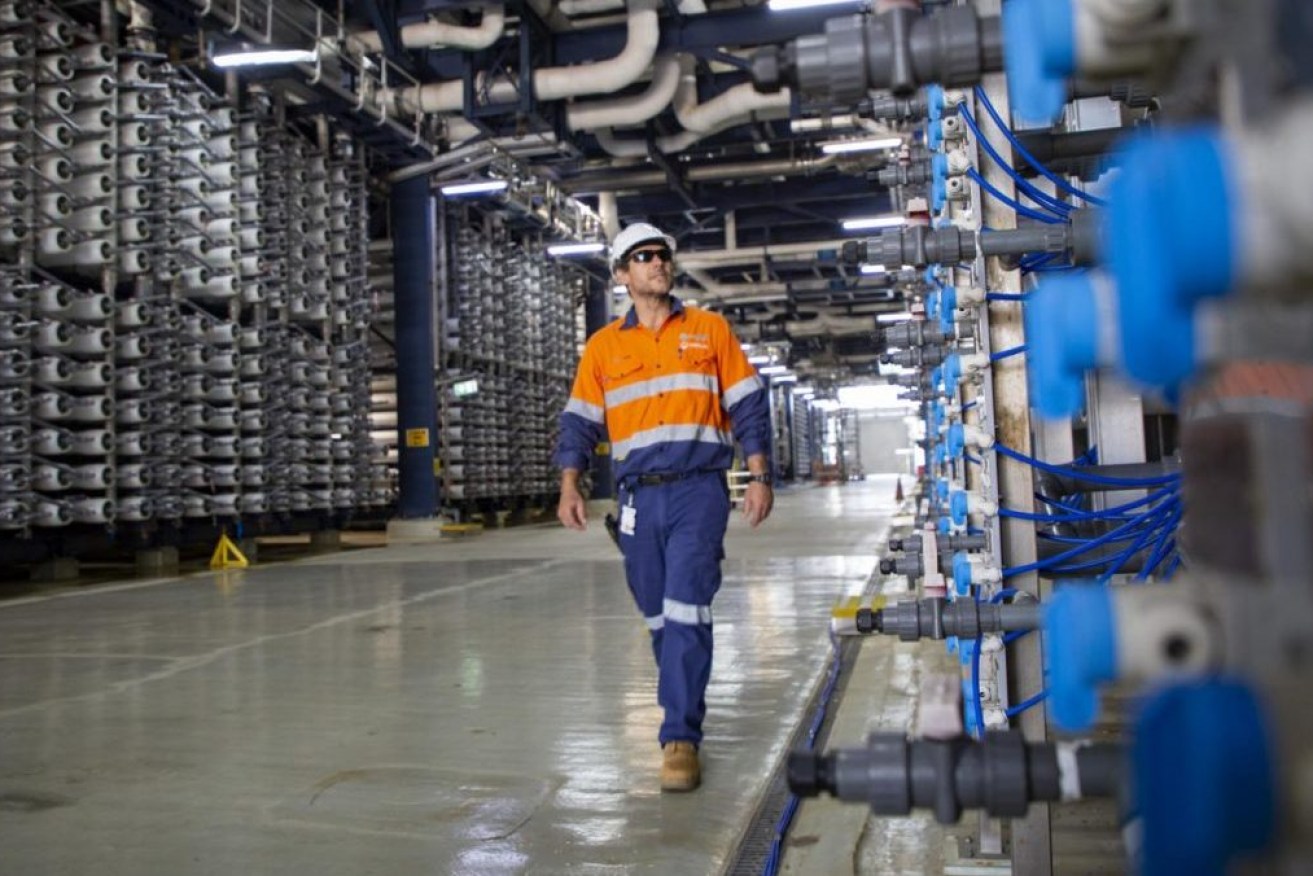Plans for massive investment in desalination plants for hydrogen
The scale of investment needed for a domestic and export hydrogen industry in Queensland would require billions of dollars and include large-scale desalination plants to produce up to 1 million megalitres of water, the Palaszczuk Government has revealed.


Queensland's existing desalination plant on the Gold Coast.
Hydrogen and Energy Minister Mick De Brenni said the challenges of establishing a hydrogen industry in Australia was like “sending a man to the moon. NASA-esque, if you like” .
He said it would require the same sort of co-ordination between government and industry as that achieved by US president John F Kennedy and the Apollo missions.
Chief among the challenges of creating as thriving hydrogen industry is its need for secure, long-term access to water.
But de Brenni said Australia would have to become energy independent and the plans he outlined would require many billions of dollars in investment.
“There can be no doubt that the recent world events build the case that Australia must act to achieve energy security and energy independence,” he said.
“A pandemic followed by natural disaster and Russia’s invasion of Ukraine make it clear that Australia must achieve full energy independence.
“If we achieve that by diversifying our local energy generation we can shield our nation from foreign companies and foreign powers.
“We can power our cars and businesses with Australian made energy and we can achieve it at the cost of energy production here at home not the cost of energy production overseas.”
But to do so would take massive investment in the supply chain for hydrogen.
“An export-scale hydrogen industry is likely to require 1 million megalitres of clean water,” de Brenni said.
To give that scale, the Wivenhoe Dam has a capacity 3 million megalitres.
“So we are looking at sea water cooling and water extraction from air, but to really scale up this industry with minimum impacts on other industries we will require large scale water desalination capability and getting the planning right for these types of facilities will be a delicate balance of economic, environmental and social factors,” he said.
“Queensland will need to deliver 8 gigawatts of firmed renewables, which will of course require significant investment in new transmission, the exact scale of which is being determined.”
He said state would need 3.5 gigawatts of pumped hydro, with up to 2 gigawatts of that potentially coming from the proposed Borumba Dam project.
The Government has not spelled out where the investment funds would come from for the renewables or desalination plants.
“This is at all the same time that we will be required to deliver reliable and affordable power to households and small businesses,” de Brenni said.
He said the Government would not stand in the way of anyone wanting to produce hydrogen that wasn’t green, but he said green hydrogen was becoming more comparable to fossil fuels.
“For several years we have seen H2 (hydrogen) under $2 a kilogram as a benchmark goal for hydrogen to be a competitive industrial input (compared) to coal and gas but that was set before a pandemic and before geopolitical instability sent the price of relative commodities skyrocketing,” he said.
“At over $US400 a tonne thermal coal prices are four times higher than they were this time last year. LNG netback prices are currently $40 a gigajoule, up fourfold in 12 months, and West Texas crude recently traded at $US120 a barrel having doubled since last year.” he said.
“Given the movement in these commodities I think it’s reasonable to suggest consideration by investors and by large consumers that they may move hydrogen to a more attractive comparative fuel.
“In fact, I know projects are already working on $3 to $4 a kilogram as we speak so the attractiveness of hydrogen will only continue to improve.”












